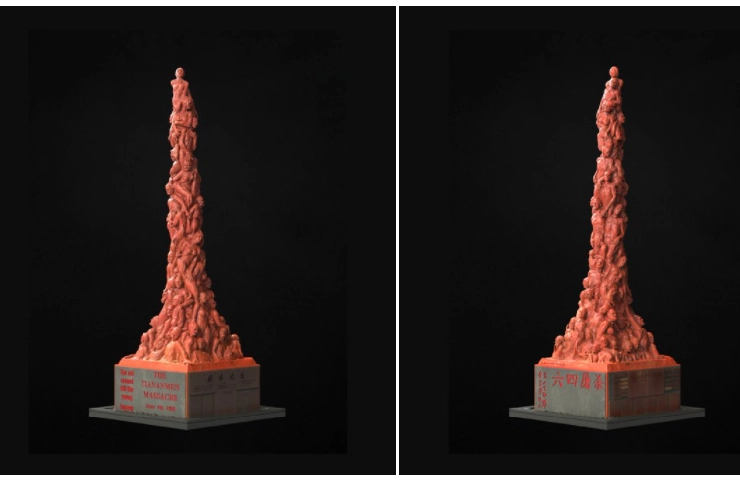The Hong Kong University (HKU) removed a copper statue commemorating the 1989 Tiananmen Square massacre on Thursday despite protests by its Danish creator.
The eight-meter-tall Pillar of Shame, which depicted 50 piled-up bodies, had been made by Danish sculptor Jens Galschiot as a memory to those who lost their lives in Beijing's military purge on pro-democracy protesters at the Tiananmen Square on June 4, 1989.
The Pillar of Shame is getting demolished right now in Hongkong. The sculpture has been covered and is heavyly guarded so that no students can document what is going on. This is happening in the middle of the night in Hongkong. Im shoked. #Thepillarofshame
pic.twitter.com/eSDjTWql7y
— Jens Galschiøt (@Galschiot) December 22, 2021
Over the last few months, China has cracked down on dissent and freedoms in Hong Kong.
The HKU had asked for the removal of the statue this October after which the Danish sculptor had offered to take it back to Denmark. He did not hear either from the university or from Beijing.
University officials barricaded the area on Wednesday after which workers worked overnight to dismantle the monument under security.
The sculptor told news agency The Associated Press that the monument is his property and China should return it to him. He has threatened to sue the university if the statue is damaged during its removal.
The city-based NGO–Hong Kong Alliance in Support of Patriotic Democratic Movements of China–which used to organise the annual commemoration for students killed in the Tiananmen Square crackdown disbanded in September after Beijing froze its assets and arrested its leaders.
Hong Kong was the only place in China where people could legally collect and commemorate the 1984 Tiananmen Square massacre. Lately Beijing ensured that no candlelight vigils were held and it also filed cases against dozens of activists who made attempts to hold the vigils.
With China taking over the megapolis completely in 2020 and by imposing the National Security Law, it has curtailed the rights of individuals, shut down many NGOs and put impositions on the media. It has also attempted to control businesses operating out of Hong Kong, forcing many to relocate.
With China implementing its writ in Hong Kong, Human rights organisation Amnesty International announced in October that it was shutting down its Hong Kong operations. In a statement it had said that by the end of the year it will shutter both its offices in the city.
With the removal of the statue from the HKU, China has moved to ensure that probably the last remaining memory of the Tiananmen Square massacre is sanitised from the public.
Also Read: Pressure to cancel Winter Olympics in China mounts as Tokyo Olympics close

















